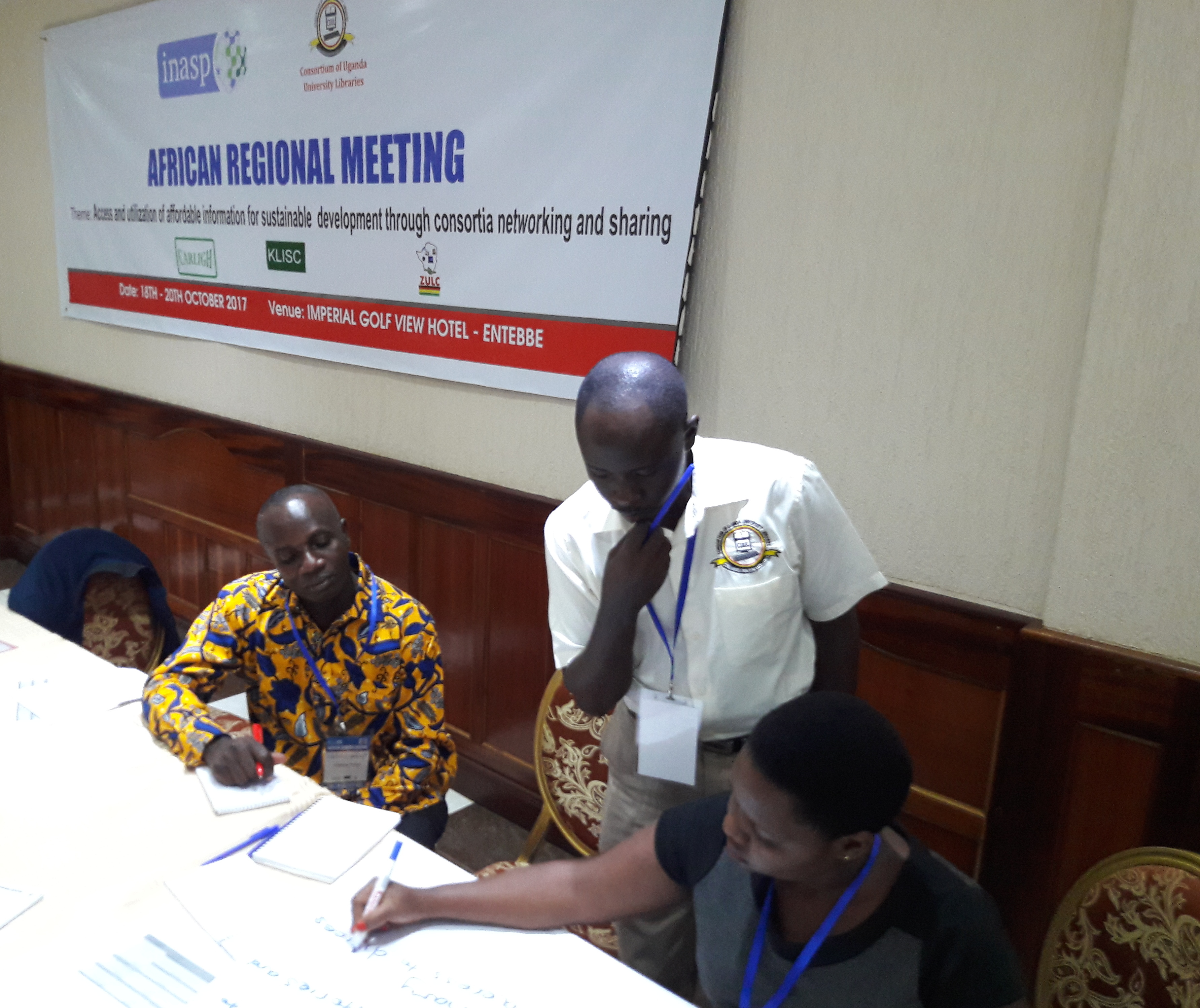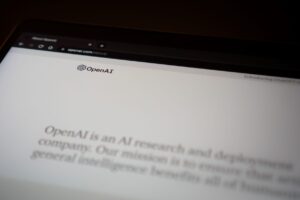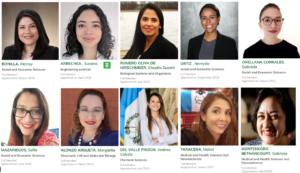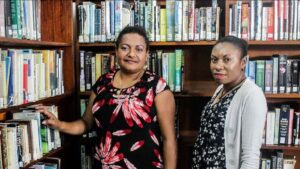
Sustainable development through strengthened consortia networking and sharing
As a part of INASP’s work with library consortia, we have been encouraging and helping to build up direct relationships between our partner consortia and publishers to ensure long-term access to research literature.
As the SRKS programme comes to an end, with support from INASP, a three-day African Regional Meeting was held in Entebbe, Uganda in October 2017. This meeting gave a further opportunity for networking among the four strongest African library consortia (Ghana, Kenya, Uganda and Zimbabwe) to celebrate their transition to direct management and strategic leadership in providing research literature for their respective countries.
At the regional meeting in Entebbe, we were pleased to see evidence of the growing confidence of our consortia partners in terms of understanding and negotiating licences, developing and articulating more robust strategies, communicating in clearer and more compelling ways, having more focus on financial sustainability and bringing innovative approaches to fundraising. It was also encouraging to see that our stronger consortia partners are now stepping into the role of mentoring/coaching others based on their experiences and successes.
Reflecting on achievements
We also had an opportunity to talk and reflect on achievements and challenges as well as the future of these consortia. We could clearly see how our consortia partners were proud of their achievements.
“Because of us coming together as a consortium, we are able to share our limited resources and … we have been able to ensure that our researchers continue to have access to resources. Yes, we would like to have more, but now I think we are doing the best with what we have.” – Audrey Mhlanga, member, Zimbabwe University Library Consortium (ZULC)
“I think [the achievement] is the transformation in research and teaching and planning. I would single out bringing quality through proper access to information resources as the single major role or impact of KLISC.” – Joseph Kavulya, member, Kenya Libraries and Services Consortium (KLISC)
Consortia members also shared what they feel as challenges around access to resources:
“The challenges are usually about paying for e-resources […]. Also, ensuring the effective use of resources is a challenge. I think another challenge is the issue of information literacy skills.” – MacAnthony Cobblahr, Vice-chair, Consortium of Academic and Research Libraries in Ghana (CARLIGH) committee
They reflected on what they achieved through the partnership with INASP and how they are better prepared now:
“The partnership with INASP has made us meet a milestone. […] INASP has helped us not just in negotiating with publishers, but also the issue of access. And, most importantly, we have learnt from INASP how to do things correctly.” – Sarah Kibugi, Director of Library information services at the Technical University of Kenya and member of KLISC
“INASP has enabled to help us develop capacity for licensing negotiation. We are now able to negotiate affordable e-resources for our members, INASP has also built capacity of the consortium on information literacy, how to train our users on how to access these resources.” – MacAnthony Cobblah, Vice-chair, Consortium of Academic and Research Libraries in Ghana (CARLIGH) committee
The meeting witnessed the formation of a small working group to ensure a future regional meeting. It was delightful to see how connections and relationships were renewed or formed, meeting our expectation that the consortia will be able to support each other without INASP as an intermediary.
Changing relationships
The participants had mixed feeling about leaving INASP. We at INASP have similar feelings and at the same time we are excited to see how consortia are becoming independent.
“The future is bright. I think we are at a stage now where we consider ourselves to be strong. We know that we can take forward from what we have gathered from INASP. We can continue to provide access to electronic resources.” – Audrey Mhlanga, member, Zimbabwe University Library Consortium (ZULC)
“I would like to pass on my gratitude to INASP. INASP has been very supportive to us and I believe that even if they move out now, I believe they are not entirely moving out, they will still support us.” – Caroline Cobusingye, member, Consortium of Uganda University Libraries (CUUL)
We are proud to see these strong consortia and their growing confidence as they continue to enhance their members’ ability to deliver effective research information services.

 Previous Post
Previous Post Next Post
Next Post



This is extremely important and we are engaging in new fronts to manage Institutional Resource Centers which is a great opportunity for strengthening collaboration here.
this is in line with what I want to be , so that how can I get the fund to increase the importance of the social change in nutrition and food security in collaborating with my university(Debere Markos University)